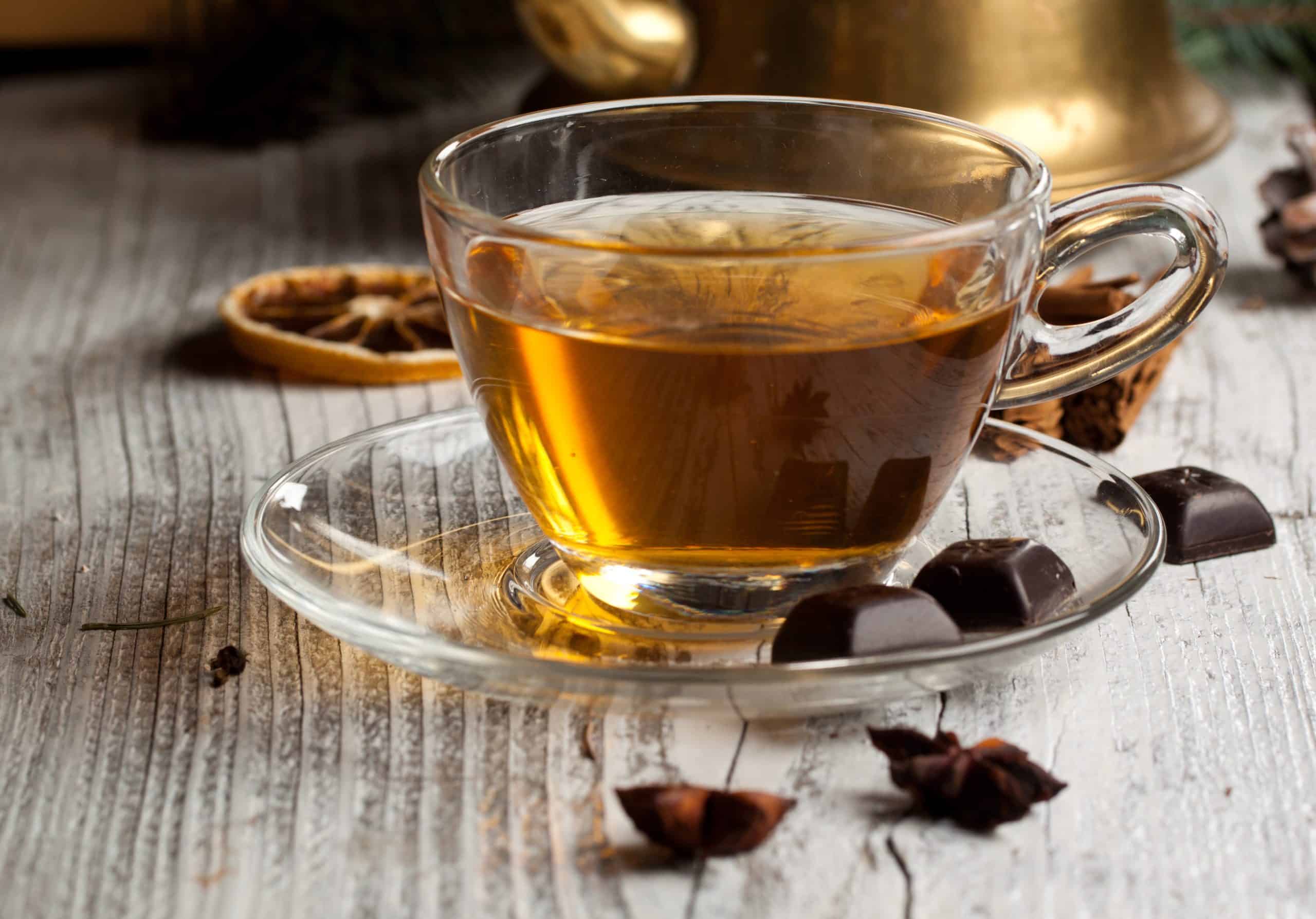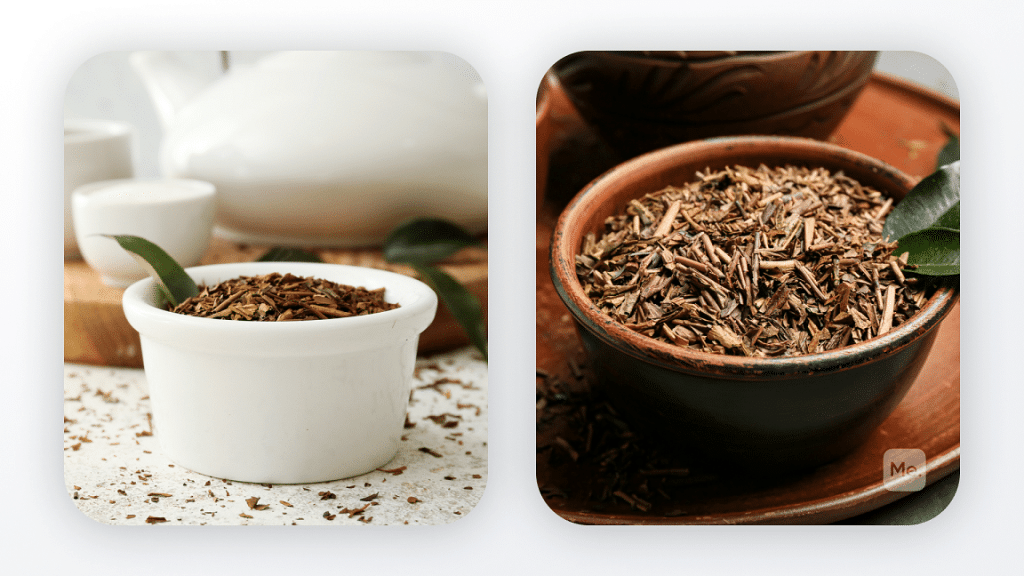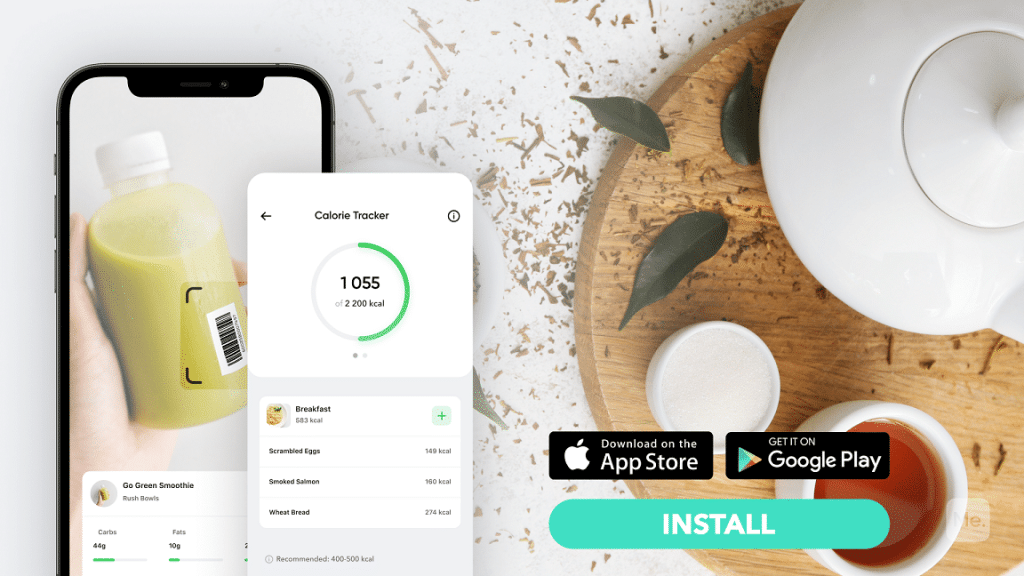Are you looking for a natural pick-me-up that goes beyond your regular coffee? Nature has gifted us some energizing elixirs that work almost the same, or even better! That caffeine that kick starts our mornings and keeps us moving throughout the day can be found in more than just coffee beans. The world is brimming with natural sources of caffeine that have fewer health-related side effects and power us more or less the same. This article delves into the fantastic world of nature’s caffeinated wonders, revealing alternatives that may give you a jolt of energy while embracing the power of nature. That said, be prepared to embark on a caffeinated journey that will astonish and excite you!
Get your personalized
meal plan!
What Are Natural Sources Of Caffeine?
Although caffeine is found in many food products and even medicines, its original form is natural. And there are synthetic versions of caffeine as well. The existence of natural products means that we don’t need to rely on synthetic ones.
Natural caffeine blocks adenosine receptors in the brain, helping the brain feel relaxed and less tired (1). The adenosine blockage keeps the brain from understanding that it is exhausted. This makes caffeine effective for fighting sleep and helping individuals stay alert.
Natural Sources Of Caffeine
Nature has blessed us with an organic way to deal with lethargy and sleep. Some of the renowned sources of caffeine found in nature include:
- Guarana
- Yerba Mate
- Matcha
- Green Tea
- Dark Chocolate
- Kola Nuts
- Kombucha
- Yaupon
- Tea leaves
If you are looking for a natural way to boost yourself, consider integrating one or more of these into your diet. It may be difficult at first to embed them into your regular consumption, but soon enough you will grow accustomed to the flavors and become fond of them.
Read More: How To Get Energy Without Caffeine In The Morning
What Is The Healthiest Source Of Caffeine?
If the weather makes you feel dreary or you don’t get a good night’s rest, you may find yourself looking for ways to boost your energy. Instead of relying on soda or store-bought coffee, it would be best to rely on natural sources of caffeine.
Guarana
Guarana is a fruit that is native to the Amazon rainforest. Its seeds are rich in caffeine and are commonly used in energy drinks for their potent stimulant effects.
Guarana is a natural source of caffeine, with much more caffeine than coffee beans. In fact, this fruit contains four to six times the amount of caffeine as coffee beans have, which is about 200% more (2). If you are searching for an alternative source of caffeine to coffee, guarana is a powerful choice that will give you a strong energy boost (2).
Other Benefits
- May reduce body fat (3)
- Helps to increase energy
Yerba Mate
Yerba Mate is an herbal tea that tends to make you feel less tired. It is a traditional South American tea brewed from a kind of Holly tree. Unlike conventional coffee with 100-120 mg of caffeine, the caffeine in Yerba Mate is around 80 mg.
It is also loaded with many anti-oxidants, with 15 amino acids, 24 minerals and vitamins, zinc, magnesium, and Vitamin C. The whole set of its components makes it a healthier choice as the consumers try to fight lethargy and weakness.
Other Benefits
Matcha
Matcha is a powdered green tea that originated from Japan. The leaves are grown and processed in a unique environment for three weeks before the harvest. It is shown that the leaves contain EGCG, a special kind of polyphenol that may support weight loss and enhance metabolism.
The leaves give you around 30-40 mg of caffeine per serving and a cleaner caffeine dose than regular coffee. The energetic boost from matcha lasts longer as it contains L-theanine, inducing a calming effect.
Other Benefits
Green Tea
Green Tea is often categorized as one of the healthiest natural sources of caffeine. It offers around 30 – 45 mg of caffeine per serving. So if you are sensitive to high caffeine doses, green tea can be a healthy alternative. The amount of caffeine in green tea can vary, depending on the type of leaves, where they come from, how long the tea is brewed, and how much tea is used. The exact amount of caffeine in different green tea blends can vary.
A systematic review of studies shows that green tea may increase thermogenic effects and fat oxidation (9).
Other Benefits
If you struggle to even flirt with the idea of giving up your favorite foods or working out till your legs give way – BetterMe app is here to breathe a fresh perspective into the way you view the weight loss process! Check out the app and experience the fun side of fitness and dieting with BetterMe!
Dark Chocolate
Of all the chocolate varieties, dark chocolate contains the highest amount of caffeine. It is because the darker variants of chocolate are prepared with more cocoa solids, and cacao is enriched with caffeine. Remember that caffeine in dark chocolate is four times less than caffeine in a single coffee serving (8).
If you are sensitive to caffeine, try to get your dose from dark chocolate during the daytime instead of evening or night. In addition, it brings benefits to the heart and is rich in antioxidants.
Other Benefits
Kola Nuts
Many people chew Kola Nuts for their energetic boost. Each nut contains more caffeine than two large cups of American coffee. The US Food and Drug Administration has classified these nuts as safe for human consumption.
These nuts are extracted from Kola trees found in the tropical regions of Africa. Kola Nut extracts are often marketed as herbal supplements, but the FDA does not monitor these. It is also essential to acknowledge that The American Herbal Products Association categorizes these nuts in the list of caffeinated substances. This makes them unsafe for pregnant and nursing mothers and individuals under 18.
Other Benefits
Kombucha
Kombucha is a fermented tea that has become quite popular over the past few years. A single bottle of Kombucha contains living cultures that help to maintain digestive health. The reason why Kombucha is categorized as caffeine is because of the leaves used. The green, black, white, and oolong tea leaves of plants with caffeine are used during manufacturing.
And even though Kombucha is categorized as caffeinated, it contains a minimal amount as compared with other drinks, i.e., 15 mg per serving. The amount of caffeine from the leaves is reduced during the fermentation process. Its low caffeine levels are perfect for individuals willing to reduce their daily caffeine intake.
You should examine the caffeine content in Kombucha before buying a particular brand. The amount of caffeine used may vary from one brand to another. Each brand uses a different fermentation process and techniques to produce the tea.
Other Benefits
- Glucuronic acid may help in liver detoxification (12)
- Probiotics in Kombucha may have immune-boosting effects (13)
Read More: How Long Does It Take For Caffeine To Leave Your System?
What Herbs Naturally Have Caffeine?
The caffeine that we consume today comes from multiple sources. Knowing about the best natural sources of caffeine may help us to reduce our reliance on conventional synthetic coffee. Replacing it with organic sources is more beneficial for our overall health.
Besides the 3 natural alternative sources of caffeine, namely Guarana, Yerba Mate, and Kola Nuts, some other sources with caffeine include:
Tea Leaves (Camellia sinensis)
Tea leaves naturally contain caffeine, having about 3.5% caffeine content. Commercial teas usually have around 3% caffeine because the leaves go through a process that removes some of the caffeine using a chemical wash.
Tea bushes are resilient plants that can grow in various environments. They produce different teas like white, oolong, black, and green. These plants need high humidity, heavy rainfall, and well-drained soil to thrive. When harvested, the leaves typically contain around three percent caffeine by weight. The amount of caffeine in a cup of tea can vary between 6 to 110 milligrams depending on the type of tea and how it is processed and brewed.
Yaupon (Ilex vomitoria)
Yaupon is a plant that stays green all year and is found in the southeastern United States. It belongs to the Yerba Mate family. Native Americans in the Southeast have been enjoying yaupon for more than 8,000 years. They still use it in special ceremonies and rituals. It is a common belief that its consumption cleanses the mind and body, gives them strength and energy, and helps them focus better.
Unlike coffee, yaupon has about 30% less caffeine. It can enhance your energy without making you feel jittery, like some high-caffeine drinks. It also has less tannin than tea. So, don’t leave it steeping for too long so it doesn’t taste bitter.
Cocoa Beans
Cocoa beans are enriched with stimulant substances like caffeine, pure alkaloids, and theobromine. Cocoa is a fine powder that comes from chocolate. It is made by grinding cacao beans, which are the seeds of the cocoa tree. The beans are processed to separate cocoa solids and butter, then ground into a powder. Cocoa powder adds a chocolate flavor to things like chocolate drinks and treats.
Cacao pods are harvested and processed to produce cocoa powder. Some caffeine is also found in the outer layer of cocoa beans. When chocolate is made, the outer layer is taken off the beans. The beans left after removing this outer layer are called cocoa nibs.
Whether you’re a workout beast or just a beginner making your first foray into the world of fitness and dieting – BetterMe has a lot to offer to both newbies and experts! Install the app and experience the versatility first-hand!
Do Any Fruits Naturally Have Caffeine?
Not many fruits are categorized as having natural caffeine. Some fruits with caffeine were discussed earlier. These include:
- Cocoa is one of the best-known fruits with a higher caffeine content. Its seeds are known as cocoa beans.
- Guarana plants are also considered good sources of natural caffeine. They belong to the Sapindaceae plant family. Its seeds are widely used to elevate the energy levels of foods and beverages.
- The seeds of Kola trees are referred to as nuts. These taste bitter but become sweeter when one keeps chewing on them.
Only a handful of fruits can be considered as natural sources of caffeine. Some fruit-flavored products in stores may have added caffeine, but it would not be naturally present in the fruits.
Similarly, there are barely any vegetables with caffeine. But some concerns about vegetables in the cruciferous family (broccoli, cabbage, cauliflower, kale, brussels sprouts, and radishes) are often raised. Although they do not naturally have caffeine, eating these vegetables can affect how the body absorbs caffeine.
How Can I Get Caffeinated Without Coffee?
If you wish to get a caffeine boost without coffee, you should try looking at the alternatives. A few of which include:
Tea
A cup of black tea contains 47 mg of caffeine, and green tea contains about 28 mg. Meanwhile, the herbal tea doesn’t have any traces of caffeine.
Chocolates
An ounce of dark chocolate contains 24 mg of caffeine, and the milk chocolate has a quarter of this amount.
Soda
A 12 oz can of dark diet soda has 40 mg of caffeine.
Energy Drinks
A single cup or 8 oz of energy drink contains 85 mg of caffeine. But you should know these drinks are typically available in 16 oz servings. This automatically doubles their caffeine content.
Supplements
You can also check some supplements to fulfill your caffeine cravings. These supplements have about 200 mg of caffeine per tablet, which is equal to the amount in 2 cups of brewing coffee.
These alternatives to caffeine are a good place to start if you are trying to reduce your coffee consumption. Besides the ones mentioned above, you can also start with the healthiest natural sources of caffeine, like guarana, yerba mate, and green tea.
Please note, there is a caffeine overdose risk if you consume sodas and energy drinks as caffeine alternatives. Since they are usually consumed chilled, they are easy to digest in higher quantities.
Is Natural Caffeine Stronger?
Synthetic caffeine, available in powdered form and as an additive to sodas/energy drinks, is more potent than natural caffeine. You should know that synthetic caffeine is produced using several harsh chemicals. Of course, not all types of synthetic caffeine are dangerous or harmful when consumed in smaller quantities.
It is worth noting that natural sources of caffeine, such as coffee, tea, or cacao, often contain other compounds that can affect how caffeine absorbs in the body. These additional compounds may have synergistic effects or interact with caffeine to modulate its impact. For example, tea contains L-theanine, an amino acid known to promote relaxation and counteract the jittery effects of caffeine.
Different fruits or beverages with natural caffeine may have varying concentrations, influencing the intensity of its effects. Daily caffeine intake up to 400 mg daily is considered safe for healthy adults. Nursing and pregnant mothers and those with medical conditions should ask their physicians about safe quantities.
Summary
Most of us can’t function unless we get a dose of caffeine in the mornings. A shift towards a lifestyle closer to nature is always a good idea. Replacing synthetic caffeine with natural sources of caffeine will bring you a step closer to an organic lifestyle. Natural caffeine also tends to sustain energy levels for longer than synthetic ones.
Of all the good sources of natural caffeine, you should opt for the ones you believe you will enjoy. It may take some time to get accustomed to the new flavors, but the change becomes easier when you get the same kick.
Caffeine has worked its way into many food options. From coffee-flavored ice creams to energy drinks and sodas, dismissing the synthetic versions at once could be challenging.
Frequently Asked Questions (FAQs)
-
Is Coffee The Healthiest Source Of Natural Caffeine?
Caffeine is naturally found in the leaves and beans of coffee plants. Regarding consumption drinking tea or coffee (without sugar) are the healthier options.
-
Is Natural Caffeine Better For You?
Both synthetic and natural caffeine have the same impact on your body. But foods with natural caffeine are considered more nutritious and less likely to contain harmful components. You can research the strongest natural sources of caffeine to get a stronger buzz without hazardous compounds.
-
Is Natural Caffeine Bad For You?
Generally, natural caffeine isn’t considered hazardous to health. It may cause problems when consumed in larger amounts, especially for individuals with medical conditions.
-
Is 200mg Of Caffeine A Lot?
A 200 mg caffeine dose can be considered moderate to high. It depends on an individual’s sensitivity to caffeine and their overall health. Consuming more caffeine may lead to side effects like anxiety, digestive issues, insomnia, and increased heart rate.
DISCLAIMER:
This article is intended for general informational purposes only and does not serve to address individual circumstances. It is not a substitute for professional advice or help and should not be relied on for making any kind of decision-making. Any action taken as a direct or indirect result of the information in this article is entirely at your own risk and is your sole responsibility.
BetterMe, its content staff, and its medical advisors accept no responsibility for inaccuracies, errors, misstatements, inconsistencies, or omissions and specifically disclaim any liability, loss or risk, personal, professional or otherwise, which may be incurred as a consequence, directly or indirectly, of the use and/or application of any content.
You should always seek the advice of your physician or other qualified health provider with any questions you may have regarding a medical condition or your specific situation. Never disregard professional medical advice or delay seeking it because of BetterMe content. If you suspect or think you may have a medical emergency, call your doctor.
SOURCES:
- Caffeine (2022, ncbi.nlm.nih.gov)
- Guarana provides additional stimulation over caffeine alone in the planarian model (2015, pubmed.ncbi.nlm.nih.gov)
- An herbal supplement containing Ma Huang-Guarana for weight loss: a randomized, double-blind trial (2001, pubmed.ncbi.nlm.nih.gov)
- Thermogenic effects of commercially available plant preparations aimed at treating human obesity (1999, pubmed.ncbi.nlm.nih.gov)
- Yerba Maté (Ilex paraguariensis) Metabolic, Satiety, and Mood State Effects at Rest and during Prolonged Exercise (2017, ncbi.nlm.nih.gov)
- Pharmacological effects of green tea on the gastrointestinal system (2004, pubmed.ncbi.nlm.nih.gov)
- Beneficial effects of green tea: A literature review (2010, ncbi.nlm.nih.gov)
- How Much Caffeine Is In Dark Chocolate? (2022, nunuchocolates.com)
- The neuroprotective effects of cocoa flavanol and its influence on cognitive performance (2013, ncbi.nlm.nih.gov)
- Eating dark and milk chocolate: a randomized crossover study of effects on appetite and energy intake (2011, ncbi.nlm.nih.gov)
- Health benefits of kola nut (2017, medicalnewstoday.com)
- DETOXING: GLUCURONIDATION (n.d., drlaurendeville.com)
- Does Kombucha Boost Immune Systems? (n.d., brewdrkombucha.com)












